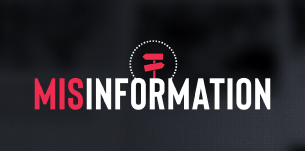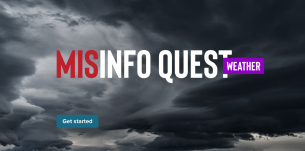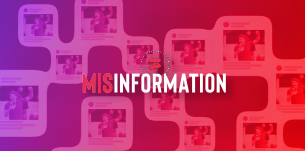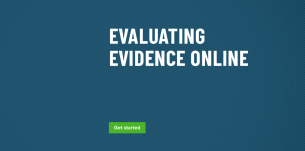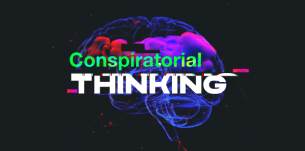Sharpen your students' skills with ‘MISINFO 101’
Misinformation affects us all. But you can give your students the tools to fight back.
By teaching students how to identify and debunk misinformation, you can help them become less susceptible to it and more likely to prioritize reliable, verified sources of news and information. Below are some free resources to get started.
Assign the “Misinfo 101” preset course on Checkology®.
Teach students how to develop a deeper understanding of misinformation with two Checkology lessons — "Misinformation" and “Conspiratorial Thinking” — and four supplemental activities. Pick and choose what you’d like or assign the whole preset course. Just follow these steps to get started:
Short on time? Pick a topic and explore some other resources below.
| 🚨 Identifying misinformation | 👽 Recognizing conspiratorial thinking | ✅ Taking informed action |
|---|---|---|
|
Essential question: How can misinformation and false beliefs undermine an individual’s participation in a democracy and threaten the political process? |
Essential question: How can we know what to believe? What makes a piece of information credible? |
Essential question: What does it look like to be a responsible and news-literate participant in a democracy? |
| Read: In brief: Misinformation | Read: NewsLit Week | Use ‘PEP’ to talk to conspiracy believers | Read: How to know what to trust |
| Watch: Flipgrid topic: What is misinformation? (Log in to Flipgrid) | Watch: “TRUST ME” classroom guide: A unit on manipulation and misinformation | Watch: News Goggles: Seana Davis, Reuters |
| Assign: Misinformation (Log in to Checkology required) | Assign: Conspiratorial Thinking (Login to Checkology) | Assign: Classroom Activity: Fact-check it! |
| Discuss: Flipgrid topic: Don’t just react. Reflect! (Log in to Flipgrid) | Discuss: Flipgrid topic: What are "pseudo-experts?” (Log in to Flipgrid) | Discuss: Flipgrid topic: How to (respectfully) speak up (Log in to Flipgrid) |
| Review: Fighting falsehoods on social media | Review: News Lit Quiz: Avoid the trap of conspiratorial thinking | Review: Should you share it? |
| 🚨 Identifying misinformation |
|---|
|
Essential question: How can misinformation and false beliefs undermine an individual’s participation in a democracy and threaten the political process? |
| Read: In brief: Misinformation |
| Watch: Flipgrid topic: What is misinformation? (Log in to Flipgrid) |
| Assign: Misinformation (Log in to Checkology required) |
| Discuss: Flipgrid topic: Don’t just react. Reflect! (Log in to Flipgrid) |
| Review: Fighting falsehoods on social media |
| 👽 Recognizing conspiratorial thinking |
|---|
|
Essential question: How can we know what to believe? What makes a piece of information credible? |
| Read: NewsLit Week | Use ‘PEP’ to talk to conspiracy believers |
| Watch: “TRUST ME” classroom guide: A unit on manipulation and misinformation |
| Assign: Conspiratorial Thinking (Login to Checkology) |
| Discuss: Flipgrid topic: What are "pseudo-experts?” (Log in to Flipgrid) |
| Review: News Lit Quiz: Avoid the trap of conspiratorial thinking |
| ✅ Taking informed action |
|---|
|
Essential question: What does it look like to be a responsible and news-literate participant in a democracy? |
| Read: How to know what to trust |
| Watch: News Goggles: Seana Davis, Reuters |
| Assign: Classroom Activity: Fact-check it! |
| Discuss: Flipgrid topic: How to (respectfully) speak up (Log in to Flipgrid) |
| Review: Should you share it? |
Watch our webinar, From Memes to Conspiracy Theories: Teaching ‘Misinfo 101’ on Checkology. You’ll learn more about how to assign, teach and customize “Misinfo 101.”
You'll also hear from Peter Adams, NLP’s senior vice president of education, who spoke about today’s misinformation landscape and how you can help students develop a deeper understanding of the topic. NewsLit Nation ambassador Cathy Collins and NLP staff experts also shared tips for bringing “Misinfo 101” into your classroom.
🙋 Questions about Checkology? Visit the Checkology Help Center or email us at [email protected].
